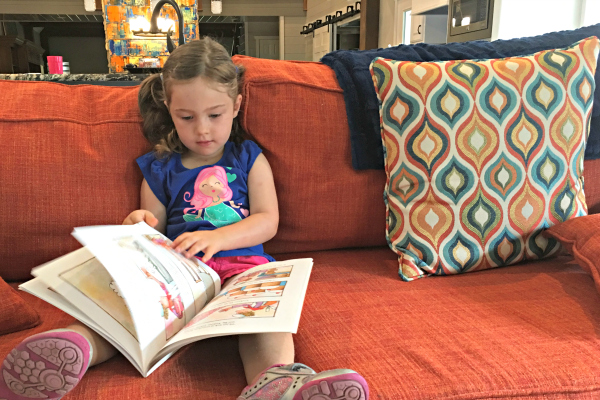Av•er•age: An amount, standard, level, or rate regarded as usual or ordinary.
In mathematics, an average is taken by adding all the values in a set and dividing by the number of values. The average is never the lowest value and it’s never the highest. The average of a set is neither inherently good or bad; it’s a neutral value. In today’s Parenting Olympics, however, the word average tends to strike fear in the minds of moms and dads; the word is just so…ordinary. From the moment children are conceived, parents then conceive something else – extraordinary dreams for their children. Dreams of academic prodigies and star athletes, of tiny theater connoisseurs and pint-size supermodels :: every parent would admit to dreaming something of which her child could excel, and be a star.
But what about the kids who are in fact, average? That is, they present as the standard for their age, usual, or ordinary. They don’t stand out. Like the teenage girl who loves basketball and works hard with a great attitude, but will never make the Varsity team full of superstars. Or the first grade boy who loves stories and books, but still struggles to read totally independently. And what about the nine year old girl who will never be considered classically beautiful by her peers?
Is Average a Liability in Today’s Competitive Parenting Culture?
It’s not difficult to understand why today’s modern parents are so afraid of their children being average. Preschools boast exceptional curriculum with an emphasis on reading readiness and number sense. Parents agonize about private vs. public school, worrying that the “wrong” choice could somehow irreparably harm their child’s chances of being accepted by a top college. Summer camps offering specialized instruction in any and all academic subjects or special interests are readily available. Children can specialize in one sport as early as kindergarten and then play that sport year-round. It can almost seem that if a child isn’t excelling in something, it’s the parents’ fault for not enrolling him in the specifically right school or activity for him to shine. Is there any hope for the ordinary, average kid?
Thankfully, I believe the answer is a resounding YES!
Average Does Not Equate to Unsuccessful
My daughter is four years old. She has just begun writing her name, and she always writes the C backwards and more often than not, forgets the A. She started talking early, but walked on the later end of the developmental timeline. She struggled with potty training, but finally got it right before she turned four. Although she knows all her letters and most of their sounds, she’s nowhere near actually reading words. In short, she’s average. Rather than pushing her to learn skills or achieve milestones ahead of developmental norms, I’m consciously focusing on building traits that will serve her throughout her life, like kindness, empathy, getting along with others, and creativity. She spends a lot more time coloring, making up silly stories, and dressing up in princess outfits than she does working on anything academic. I hope that later on, she defines her success not by her GPA or how many people she beats out for a spot on a sports team, but by the positive impact she makes on others and the world.
A Child’s Worth is Inherent, Not Performance Based
My children, and yours, are precious, worthy and deserve approval just because they are human. Yes, we should encourage them to work hard to fulfill their individual potentials. Yes, we should praise and reward them for their accomplishments. Yes, we should support healthy competition. But not every child is or should be a superstar. Despite what we may think or a school placement assignment says, chances are our children are not really gifted. Statistically speaking, we aren’t raising future pro-athletes, no matter how much time {or money} we spend on a sport. Some of our children have needs and challenges that will prohibit them from being “successful” by the world’s standards of success.
It’s right there in the definition :: most of our children will turn out to be average, and they will be in good company. As long as we are raising those children to be good humans, there should be no shame in the label of average. Instead of spending an extraordinary amount of time, money, and mental energy trying to give our kids academic and extracurricular advantages, let’s focus on building their character, giving them opportunities to explore their true interests, and teaching them to be good citizens.
Do you think there is too much pressure on parents to raise extraordinary children? What are your thoughts on having “just average” kids?
















